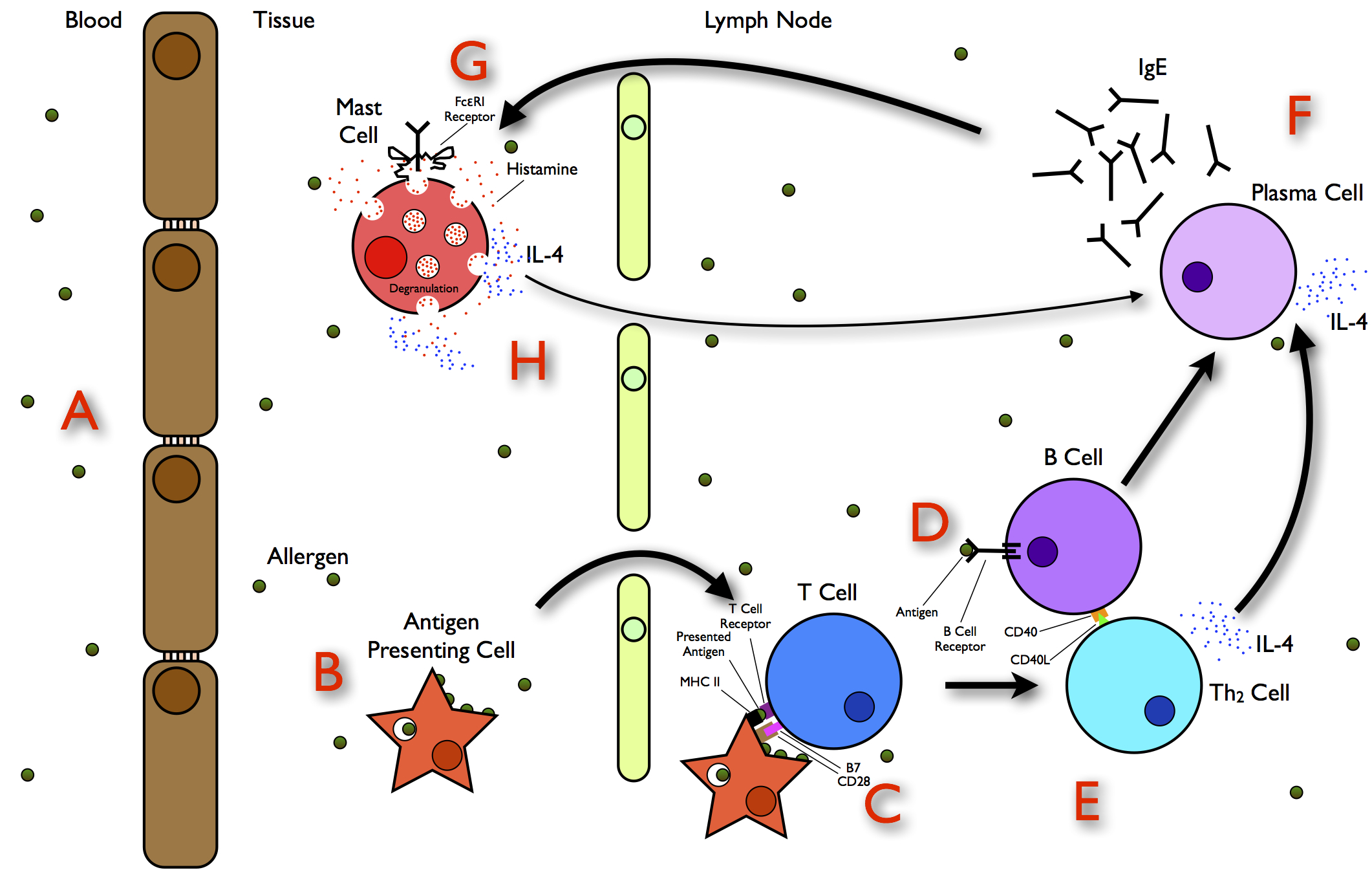Cetzine Syrup
- I. Introduction to Cetzine Syrup
- II. Composition of Cetzine Syrup
- III. Uses of Cetzine Syrup
- IV. How Cetzine Syrup Works
- V. Dosage and Administration of Cetzine Syrup
- VI. Side Effects of Cetzine Syrup
- VII. Common Side Effects of Cetzine Syrup
- VIII. Cetzine Syrup Warnings and Precautions
- IX. Contraindications of Cetzine Syrup
- X. Interactions of Cetzine Syrup with Other Medications
- XI. Special Precautions for Different Populations
- XII. Overdosage of Cetzine Syrup
- XIII. Storage Guidelines for Cetzine Syrup
- XIV. Handling Precautions for Cetzine Syrup
I. Introduction to Cetzine Syrup
Cetzine Syrup is a widely recognized antihistamine medication primarily utilized to alleviate symptoms of allergic reactions. It is formulated to combat allergy-related discomforts, including sneezing, itching, and rashes. With a well-established reputation in the therapeutic field, Cetzine Syrup offers relief from various allergic manifestations, making it indispensable in allergy management.
Cetzine syrup is frequently prescribed for both chronic and acute allergic responses, helping patients lead a more comfortable life by alleviating disruptive symptoms. As such, It plays a crucial role in the treatment of conditions that trigger an overactive immune response, providing an effective defense against the common adversities of allergic reactions.
II. Composition of Cetzine Syrup
The primary active ingredient in Cetzine Syrup is cetirizine hydrochloride, typically concentrated to deliver an optimal therapeutic effect. Cetirizine is a potent second-generation antihistamine which is less likely to induce drowsiness than older antihistamines.
Alongside cetirizine, the formulation contains various inactive ingredients, or excipients, to ensure stability, efficacy, and palatability. These include:
- Preservatives: To maintain the shelf-life and prevent microbial growth.
- Flavoring agents: Enhancing the taste, making it more acceptable, especially for pediatric patients.
- Sweeteners: These are used to improve the overall flavor profile of the syrup.
Formulated carefully, Cetzine Syrup provides a balanced and effective option for allergy relief.

Cetirizine hydrochloride and pseudoephedrine hydrochloride
Cetirizine hydrochloride and pseudoephedrine hydrochloride act as both an antihistamine and a decongestant. They are commonly used to alleviate or prevent allergy symptoms such as congestion and itching in the nose or throat, sneezes, and runny nose.
Cetirizine hydrochloride vs loratadine
Patients have mentioned that cetirizine hydrochloride works faster than loratadine, which provides lasting relief.
Cetirizine hydrochloride vs levocetirizine dihydrochloride
Levocetirizine is the R isomer of the cetirizine dihydrochlorides mixture. Is known to be less sedating compared to cetirizine while being typically pricier, in cost.
Cetirizine hydrochloride vs claritin
Zyrtec contains cetirizine, and Claritin contains loratadine.
Cetirizine hydrochloride vs benadryl
Both Cetirizine hydrochloride, also known as Zyrtec, and diphenhydramine, commonly referred to as Benadryl, have functions such as over-the-counter antihistamines for alleviating allergy symptoms.
Cetirizine hydrochloride vs diphenhydramine
In terms of duration of action, cetirizine has a lasting effect as it is usually consumed daily, whereas diphenhydramine needs to be taken every 4 to 6 hours.
III. Uses of Cetzine Syrup
Primary Indications for Cetzine Syrup
Cetzine Syrup is primarily indicated for the treatment of various allergy symptoms, making it an effective choice in the management of:
- Seasonal allergic rhinitis: A condition characterized by sneezing, nasal congestion, and runny nose due to allergens like pollen.
- Chronic urticaria: Also known as hives, this involves red, itchy welts on the skin.
- Chronic idiopathic hives: It is helpful in cases where the cause of hives is unknown.

Off-label Uses of Cetzine Syrup
In addition to its primary applications, Cetzine Syrup is sometimes used off-label for:
- Cold and cough symptoms: Although not a primary treatment, it may provide symptomatic relief for cold-related irritation.
- Skin-related allergies: Off-label for dermatologic conditions where histamine-related reactions are suspected.
Cetirizine hydrochloride for dogs
Cetirizine is an antihistamine that doesn't cause dizziness. It is commonly used to alleviate skin irritation caused by atopic dermatitis or allergens in dogs.
IV. How Cetzine Syrup Works
Cetirizine, in Cetzine Syrup, works as an antihistamine by blocking the effects of histamine in the body, which causes reactions. It binds to histamine receptors without triggering them to stop histamine from attaching and ease allergy symptoms. The effects kick in quickly, usually within an hour, relieving symptoms. This quick response makes it a popular option for patients and healthcare providers seeking antihistamines.

V. Dosage and Administration of Cetzine Syrup
Recommended Dosage for Adults and Children
Dosage varies depending on age and the severity of the allergic reaction. Generally:
- Adults: One recommended daily dose, which can be adjusted based on medical advice.
- Children: Dosage is usually lower and often split into smaller doses for precise administration.
Administration Guidelines
Patients should follow the guidance of a healthcare provider, for results when using the syrup, for relief purposes. It is important to measure to prevent overdose risk in children, and using a measuring spoon or oral syringe can help ensure precision in dosage administration.
VI. Side Effects of Cetzine Syrup
Overview of Common Side Effects
Most patients tolerate Cetzine Syrup well, although some mild side effects may occur, such as:
- Drowsiness: Particularly in sensitive individuals or higher doses.
- Dry mouth and throat: A frequent, though mild, side effect that generally subsides over time.
Serious Side Effects
There might be reactions that need medical care. Signs such as lightheadedness, trouble breathing, or swelling of the face or tongue call for medical assistance.
VII. Common Side Effects of Cetzine Syrup
Short-term side effects are generally mild and manageable, often subsiding as the body adjusts. Common side effects include:
Most of these symptoms can be alleviated by staying hydrated and avoiding sedatives that may compound drowsiness.
VIII. Cetzine Syrup Warnings and Precautions
When using Cetzine Syrup, it's important to follow precautions. If you have issues, it's best to seek advice from a doctor since it could potentially impact your breathing rate in situations. Be sure to follow the recommended dosage to avoid feeling drowsy or experiencing side effects.

Cetirizine hydrochloride pregnancy
During pregnancy, Cetirizine is considered safe to use as there is no evidence suggesting harm to the baby; however, healthcare providers may suggest using antihistamines, like loratadine, due to more available information on its safety during pregnancy. It's advisable for individuals, with preexisting conditions to exercise caution when using these medications to prevent any complications.
IX. Contraindications of Cetzine Syrup
Certain medical conditions contraindicate the use of Cetzine Syrup:
- Hypersensitivity to cetirizine: Individuals allergic to cetirizine or similar antihistamines should avoid its use.
- Renal impairment: Caution is advised due to the potential accumulation of the medication in the body.
- Children under a certain age: The syrup may not be suitable for very young children unless specifically recommended by a healthcare provider.
Cetirizine hydrochloride and alcohol
Using alcohol alongside cetirizine can heighten its impact on the system by causing dizziness and drowsiness while making concentration challenging for some individuals; this may also lead to impaired thinking and judgment abilities. Avoiding or moderating alcohol intake during cetirizine treatment is advised. Staying mindful of contraindications is crucial in avoiding reactions and maintaining successful symptom relief.
X. Interactions of Cetzine Syrup with Other Medications
Taking Cetzine Syrup alongside medications could result in side effects or significantly reduce its effectiveness. It is important to be aware of these interactions, as they can impact the effectiveness and safety of the treatment. Some crucial considerations to keep in mind are that some medications might diminish the impact of cetirizine and lead to outcomes like increased sleepiness or reduced relief from symptoms.

Interactions with Over-the-Counter Medications and Supplements
Patients should be cautious when using Cetzine Syrup alongside common over-the-counter (OTC) medications and supplements. Some common interactions include:
- Antihistamines: Combining Cetzine with other antihistamines can increase sedation effects, potentially causing pronounced drowsiness and fatigue.
- Alcohol: Alcohol may enhance cetirizine's sedative effects, leading to heightened dizziness or lethargy.
- Herbal supplements: Supplements with soothing properties, such as valerian or melatonin, may increase the risk of drowsiness.
Important Combinations to Avoid While Taking Cetzine Syrup
Cetzine Syrup should not be combined with certain medications without medical advice:
- CNS depressants: Medications like tranquilizers or certain antidepressants can interact to produce an intense sedative effect.
- Anticholinergic drugs: Combining with drugs like tricyclic antidepressants can exacerbate side effects like dry mouth or urinary retention.
XI. Special Precautions for Different Populations
Administration to Elderly Patients
In elderly patients, Cetzine Syrup should be administered with caution. Adjustments in dosage may be necessary due to potential alterations in drug metabolism with age.
- Dosage adjustments: A lower dose may be recommended to prevent excessive sedation.
- Monitoring: Regular monitoring for side effects like confusion or excessive drowsiness is essential, as elderly individuals may be more sensitive.
Administration to Pregnant Women and Nursing Mothers
Cetzine Syrupâs safety profile during pregnancy and lactation is essential for consideration. It is generally prescribed only when benefits outweigh potential risks.
- Pregnancy recommendations: Usage is generally advised with caution, especially in the first trimester.
- Breast milk impact: Cetirizine may be excreted in breast milk; therefore, it is recommended to consult a healthcare provider regarding usage during lactation.
Administration to Children
Cetzine Syrup can be safely administered to children, but dosage should be carefully calculated based on age and weight. Pediatric use requires attention to:
- Safe dosage: Pediatric doses are typically lower and require precision to prevent overdosage.
- Long-term precautions: For children using Cetzine for extended periods, regular check-ups are recommended to assess efficacy and monitor side effects.
XII. Overdosage of Cetzine Syrup
Symptoms of Cetzine Syrup Overdose
An overdose of Cetzine Syrup may lead to symptoms such as excessive drowsiness, confusion, and, in severe cases, respiratory depression. Other signs may include:
- Restlessness or agitation
- Blurred vision
- Rapid or irregular heartbeat
Immediate Steps to Take in Case of Overdose
If you think there has been an overdose incident and are suspected of someone needing help, it is crucially important in this situation. Getting in touch, with a poison control center and taking stepsre recommended actions to take promptly afterwards.
When to Seek Emergency Medical Attention
Immediate medical attention is crucial if symptoms worsen if breathing problems escalate, or if there are signs of severe disorientation or seizures.
XIII. Storage Guidelines for Cetzine Syrup
Ideal Storage Conditions for Maintaining Potency
Proper storage of Cetzine Syrup helps maintain its efficacy and shelf life. The syrup should be stored:
- At room temperature, away from direct sunlight
- In a dry place with controlled humidity

Temperature and Humidity Considerations
Extreme heat or humidity may cause the medication to deteriorate over time; storing it in a stable environment can help maintain its effectiveness and properties intact.
Safe Practices to Prevent Accidental Ingestion
To avoid any swallowing incidents, keep the syrup in a place where kids can't reach it.
XIV. Handling Precautions for Cetzine Syrup
Proper Handling Guidelines for Caregivers and Patients
Handling Cetzine Syrup requires care to avoid contamination and dosage errors. Important considerations include:
- Using a dedicated measuring device to ensure accurate dosing
- Avoiding direct contact with the cap or bottle tip to prevent contamination
Preventing Contamination and Ensuring Proper Dosing
Remember to seal the bottle every time you use it to avoid spills and keep out any contaminants.
Tips for Safely Measuring and Storing Doses
For dosing consistency you might want to use a syringe or a measuring spoon instead. Keep a designated dry space, for storage away, from any food items or other medicines.
Cetirizine hydrochloride withdrawal
One of the signs of withdrawal is unbearable itching that may begin as early as two days after discontinuing the medication.
Cetzine Syrup FAQ
- Will cetirizine hydrochloride help with congestion?
- Wll cetirizine hydrochloride help with congestion?
- Will cetirizine hydrochloride keep me awake?
- Will cetirizine hydrochloride help with rash?
- Which is better cetirizine hydrochloride or loratadine?
- Cetirizine hydrochloride when to take?
- Where is cetirizine hydrochloride used for?
- When is cetirizine hydrochloride used?
- What is cetirizine hydrochloride oral solution?
- What is cetirizine hydrochloride and pseudoephedrine?
- What is cetirizine hydrochloride?
- What cetirizine hydrochloride 10mg?
- How often can you take cetirizine hydrochloride 10mg?
- How strong is cetirizine hydrochloride?
- How cetirizine hydrochloride works?
- Can cetirizine hydrochloride make you drowsy?
- Can cetirizine hydrochloride be given to dogs?
- Can cetirizine hydrochloride cause insomnia?
Will cetirizine hydrochloride help with congestion?
Taking cetirizine is categorized as a drowsy antihistamine; however it is still feasible to experience drowsiness following its consumption.
Wll cetirizine hydrochloride help with congestion?
It alleviates congestion and symptoms like sneezes, nose bleeds, and itching in the nose or throat. Additionally, it eases eye discomfort and redness.
Will cetirizine hydrochloride keep me awake?
While Cetirizine is categorized as a sedating antihistamine, it can still cause drowsiness in some individuals even though it's designed not to.
Will cetirizine hydrochloride help with rash?
If a severe and itchy skin rash or swelling under the skin (angioedema) troubles you or your child significantly so that standard doses of cetirizine seem ineffective in providing relief when taken as directed by your doctor, then your doctor might suggest a dose of cetirizine (up to 4 times the usual dose). However, high doses of cetirizine may not be appropriate for everyone; therefore, it's important to have a conversation with your doctor if you feel that cetirizine is not delivering the desired results for you.
Which is better cetirizine hydrochloride or loratadine?
Patients have mentioned that cetirizine hydrochloride kicks in quickly. Loratadine has a duration of action.
Cetirizine hydrochloride when to take?
Try to space out your doses with a gap of 10 to 1 hours, between them. One in the morning and another and before going to bed.
Where is cetirizine hydrochloride used for?
It helps with allergy symptoms, like red and itchy eyes or a runny nose, sneezing or hives, and prevention.
When is cetirizine hydrochloride used?
Over-the-counter cetirizine is commonly employed as an antihistamine to alleviate symptoms like itchy eyes and a runny nose, which may trigger itching, sneezing, and hives.
What is cetirizine hydrochloride oral solution?
It helps to stop and manage allergy symptoms, such as red and itchy eyes, sneezing, a runny or blocked nose, and hives.
What is cetirizine hydrochloride and pseudoephedrine?
Combining cetirizine and pseudoephedrine, this medication blends an antihistamine with a decongestant to alleviate the symptoms of perennial allergies.
What is cetirizine hydrochloride?
For adults and children over 6 years old who suffer from symptoms like sneezing and nose or skin rashes such as chronic nettle rash or idiopathic urticaria, 10 mg Cetirizine Hydrochloride Tablets can provide relief from these allergic conditions.
What cetirizine hydrochloride 10mg?
For adults and children aged six and above experiencing hay fever symptoms like sneezing or nose and skin rashes such as nettle rash or idiopathic urticaria.
How often can you take cetirizine hydrochloride 10mg?
It is expected to administer cetirizine while children under the age of 12 typically take it twice a day.
How strong is cetirizine hydrochloride?
The usual dose for adults is 10mg once a day.
How cetirizine hydrochloride works?
It operates by inhibiting production in the body when allergies occur.
Can cetirizine hydrochloride make you drowsy?
Some individuals may experience drowsiness despite Cetirizine being categorized as a sedating antihistamine.
Can cetirizine hydrochloride be given to dogs?
Its use is in cats and dogs is 'off-label'.
Can cetirizine hydrochloride cause insomnia?
Cetirizine belongs to a class of antihistamines. It can pass through the blood-brain barrier. It has been linked to difficulties sleeping and waking up during the night, in the past.









